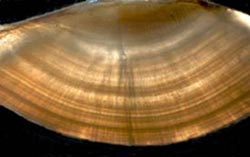Earth Sciences (also referred to as Geosciences), which deals with basic issues surrounding our planet, plays a vital role in the area of energy and raw materials supply.
Earth Sciences comprises subjects such as geology, geography, geological informatics, paleontology, mineralogy, petrography, crystallography, geophysics, geodesy, glaciology, cartography, photogrammetry, meteorology and seismology, early-warning systems, earthquake research and polar research.

Four years ago, torrential rains battered the Southern US, mudslides struck in Peru – and the inhabitants of Canada`s west coast saved up to 30% on their winter heating bills. The cause? El Niño, a huge temperature shift in the Pacific Ocean which spawns climate changes globally. Today, using satellite Earth observation data, scientists are detecting the early warning signs of a new El Niño event and predicting that it will develop over the next 3 to 6 months, bringing climate changes to countries th

The Scotia Sea, located between the Antarctic and the tip of South America, acts like a ‘blender’ on the very cold ocean waters that influence global ocean circulation patterns and ultimately climate, according to new research from the University of East Anglia (UEA) and published today (28 February) in the international journal Nature.
The research, carried out by Dr Karen Heywood, Dr David Stevens and Dr Alberto Naveira Garabato, shows that the dense, cold waters formed in the Weddell Sea

Europe’s showpiece in climate monitoring is called Envisat. Fully equipped, the largest, most complex, and most powerful Earth observation satellite of the European Space Agency (ESA) is 25 meters high, ten meters wide and weighs over eight tons, scheduled for launch in the night of 28 February /1st March on an Ariane 5 launcher.
Europe’s flying behemoth is on the trail of climate change. It will deliver data about global warming, ozone depletion and climate change for at least five

Satellites see through snow to steer safely across Antarctica.
Satellite images that expose perilous crevasses now reveal safe overland routes to the South Pole. Carolyn Merry of Ohio State University in Columbus has pieced together high-resolution satellite pictures that see through the snow, to map the passable Pole 1 .
Since a snow tractor, floundered into a hidden fissure in 1991, all supplies have been flown into the US South Pole research station. Safe t

Using tiny bone fragments from fossilized fish, scientists have traced the roots of the climate phenomenon known as El Niño, the intermittent warming of ocean waters off the coast of Peru that can affect weather worldwide. According to a report published in the current issue of the journal Science, modern El Niño conditions arose around 5,000 years ago.
Previous research based on fossilized mollusk remains had suggested that El Niño conditions did not exist thousands of years ago, but those

Africa’s malaria resurgence isn’t down to global warming
Climate change cannot explain the growth of malaria in the highlands of East Africa, say researchers. Drawing simplistic links between global warming and local disease patterns could lead to mistaken policy decisions, they warn.
Drug resistance, or the failure of the health-care system to keep pace with population growth, are more likely culprits for malaria’s rise, say Simon Hay, of the University of Oxf